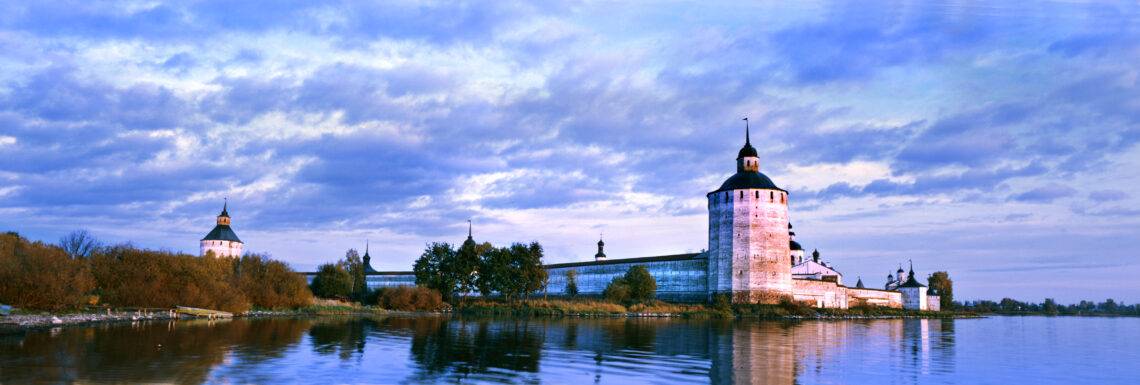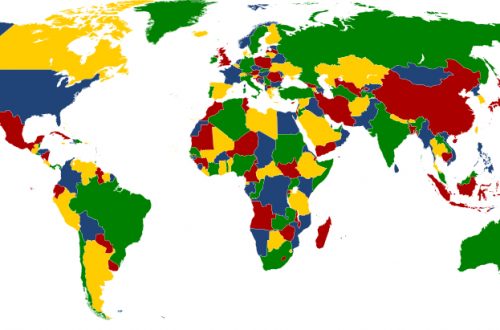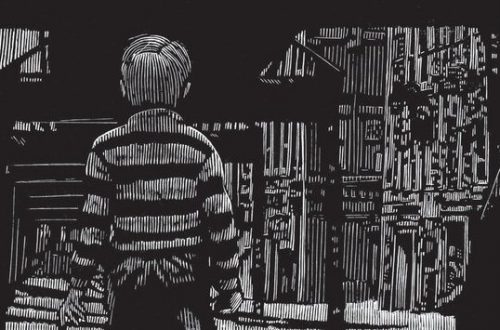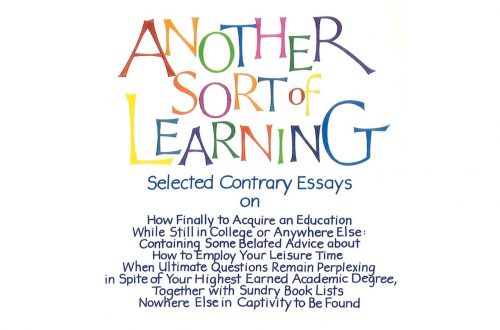by Rachel E. Hicks
“The sacred exists and is stronger than all our rebellions.” -Czeslaw Milosz
What does it feel like to fall under a spell? To suddenly wake from an enchantment? And how can we tell the difference?
Eugene Vodolazkin’s acclaimed novel Laurus gives readers a stunning and transformative experience of immersing ourselves in a re-enchanted world. Vodolazkin makes old things new again by making them strange. Laurus invites readers into a world—medieval, Orthodox Russia—where the sacred not only exists, but also orders the lives, societies, and actions of its characters. To me, the story is not magical realism in the vein of One Hundred Years of Solitude. It is somehow truer to life.
Days after finishing the book, I was still pondering its effect on me and the questions it raises. The overarching effect of Laurus is what Alison Millbank described as using the arts to break the spell of a materialistic, gnostic worldview and awaken our religious senses, “to give [us] a taste for the kingdom.” Vodolazkin’s imagination estranges us from our daily lives and helps us to see our cosmos afresh and whole. It is cool water for a strange thirst we didn’t realize we had.
The novel is earthy, embodied—sometimes so much so that we sometimes feel repulsion. We follow the holy fool and healer Arseny (whose name changes throughout his life, finally becoming Laurus) as he learns herbal medicine and piety from his grandfather, Christofer (“Christ-bearer”), and as he commits himself to wandering, silence, and asceticism as penance following a tragedy. Bodily illnesses, wounds, and needs are portrayed somewhat graphically, but not gratuitously. We are drawn closer than we might like to people’s bodies as they suffer, as Arseny comes closer to their suffering than others dare.
But Laurus also plunges us into a sacramental vision, whereby everything we see, touch, hear, and smell means more than itself: rain, snow, linen, oil, birch bark, a wolf, the human body. How can it all be both earthly and spiritual? Perhaps the secret is there is no such dichotomy, no such distinction, except in our minds.
The language of Laurus is fluid, archaic, earthly, spiritual. We find ourselves trying out words on our tongues, shaping them with our lips, reconsidering them. The blending of archaic language (including various spellings of the same words) and episodes of contemporary slang, particularly in scenes with holy fool Foma and the crowds around him, implicates the reader somehow—we become one of the crowd. This is the crowd which says both “Yf a man of God dies, this sinne shall be on thee,” and “Everyone in Rus’ knows that you’re not, like, you know, allowed to beat holy fools.” While initially a bit jarring and perplexing, Vodolazkin’s use of language and alternate spellings help weave the spell under which we fall—or from which we wake. (Speaking of Foma, he is crass, somewhat violent, and untethered, yet he speaks truth, prophesies accurately, and seems motivated by tough love. What do we make of him?)
The novel cracks open our forgotten memory. It keeps whispering, What if this were true? What if this is the way life is? It makes strange a world that we can’t quite believe in, yet one we recognize signs and stirrings of around and even inside us. It attempts to pry open the eyes of our hearts, our souls, our imaginations—our capacity to know beyond the powers of our senses. It laughs with delight and compassion in the face of our Positivism. Each of the holy ones—Arseny/Laurus, his grandfather Christofer, Elder Nikandr, Foma, Ambrogio, and Elder Innokenty—knows things he doesn’t learn via the intake of information. And so we must ask ourselves: Are there other ways of knowing that could be recovered? Can another sense, like a spiritual intuition or “sixth sense,” be awakened so we might more deeply know what is real and true?
Laurus leaves us a little more enchanted, alert, hopeful. What if we’ve simply been wrong—truncated mentally and spiritually—for the last two hundred years? There are, scattered here and there in our world, people and stories and rumors and phenomena that we can’t explain, that hint at a wilder and more enchanted world—enchanted in the sense of being more, of operating on previously unknown-to-us levels, not in the sense of being purely fantastic. More like what C. S. Lewis meant when he said, “Do you think I am trying to weave a spell? Perhaps I am; but remember your fairy tales. Spells are used for breaking enchantments as well as for inducing them.”
Laurus feels like that kind of awakening. Life is so much more, it says. There are prophecies that come true. There are holy fools who are seers. Creation has healing properties that can’t always be explained. There is a great love behind the order we find in the cosmos. Things mean. Our journeys signify something greater. The characters are led; their choices and actions are somehow both dignified as free and as part of a larger ontology. The things that matter to Laurus are the things that we intuitively recognize as those that matter most—that are at the core of what it means to be a human being. Yet those values and concerns—ones that comprise and motivate the lives and actions of Vodolazkin’s characters—seem strangely peripheral to our lives today. Indeed, the book questions everything we in the modern West build our lives upon.
Laurus teaches us about bearing—each other’s burdens and our own, the weight of our sin, and the weight of glory. It fleshes out mercy, forgiveness, and grief, allowing us to feel their full, unbearable weight, their cost. Everything carries weight and cost, Laurus says.
By the end of it, we want the world of Laurus to be true, to reflect the way things are. We fear that it may be so and we’ve been blind to it. Could God still work this way? Does he? Could I regain this way of seeing, this sacramental vision? It feels like such an effort. Closing the book after the last page feels like finishing a prayer. The material world—with its urgency and flatness and linear time—is suddenly at our elbow. Perhaps this is the kairos moment we must decide: are we waking up or falling back asleep?

Rachel E. Hicks’s poetry has appeared in Anglican Theological Review, Vita Poetica, Ekstasis, The Baltimore Review, The Windhover, Relief, St. Katherine Review, Gulf Stream, and other journals. A Pushcart Prize nominee, she won the 2019 Briar Cliff Review Fiction Prize, and her poems have been finalists in several competitions. She is the editor of Among Worlds magazine and works as a freelance copyeditor.
Header Image: Strokin.ru, CC BY 3.0 https://creativecommons.org/licenses/by/3.0, via Wikimedia Commons





